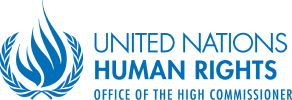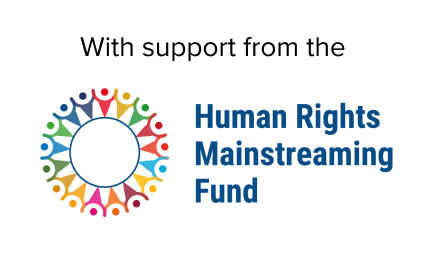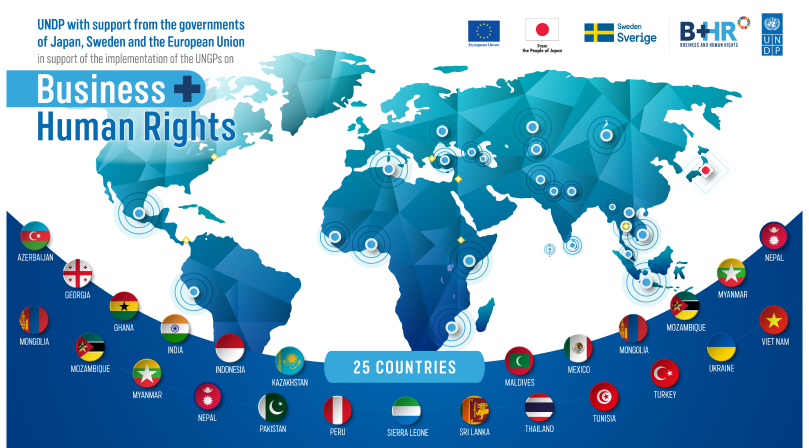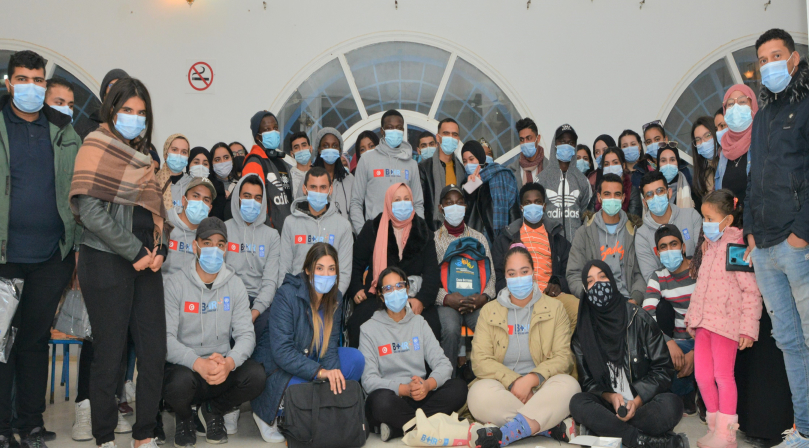


UNDP’s Global Programme supports crisis-affected contexts across all regions to strengthen the rule of law and human rights. In this section, we present five regional overviews, detailing our priorities and approach depending on the context, as well as feature select country and territory results from 2021.
Five contexts from the list (Central African Republic, Democratic Republic of the Congo, Haiti, Mali and Yemen) illustrate the achievements of the Global Focal Point for the Rule of Law (GFP). In peacekeeping missions and transition settings, UNDP’s Global Programme works through the GFP to deliver integrated assistance with our UN partners.
GFP Global Focal Point Highlights
The rule of law is essential for sustainable peace and resilient economies, as well as for the prevention or recurrence of conflict. To prevent or address injustice, inequalities or democratic deficits, UNDP works with multiple stakeholders to operate in a way that is consistent with the rule of law and creates opportunities for all individuals to exercise their rights and access justice.
The importance of strong institutions is more evident than ever as countries and communities respond to disruption, whether because of public health restrictions, climate change or political upheaval. Limitations on public gatherings and travel have revealed the need for institutions that are resilient to disruption.
2021 was a pivotal year that saw various developments affecting peace and security around the world. Civic space continued to shrink and the social contract between states and citizens was increasingly challenged, particularly during and after the response to the COVID-19 pandemic. Facing distressing consequences of climate change, states and communities are forced to manage more cross-border conflicts, triggered by the displacement of people seeking increasingly scarce resources.
The scope of human rights challenges is widening, from eroded public trust and shrinking civic space to ongoing inequality and human rights impacts in the socio-economic repercussions of the COVID-19 pandemic, and emerging risks in the digital sphere. National human rights institutions (NHRIs), along with other human rights defenders, are facing rising and sophisticated forms of reprisals for carrying out their work.
Sustainable Development Goal 16 (Peace, Justice and Strong Institutions) of the 2030 Agenda highlights the importance of access to justice for all for the development of peaceful and inclusive societies. Meaningful access to justice can only be achieved when people know their rights, have the opportunities, agency and capacities to claim them, and have access to independent, inclusive and people-centred justice systems that will respond in a timely, fair and effective manner.
Without justice, there can be no lasting peace. In post-conflict, crisis-affected and fragile contexts, truth-seeking initiatives and reconciliation efforts are essential to bring peace to affected communities. The COVID-19 pandemic has slowed down transitional processes as states prioritized their response to the health crisis and measures to support the economy.
In 2021, the continued erosion of democracy and the spread of authoritarian trends in politics in many parts of the world contributed to a backlash against women’s rights. The COVID-19 crisis has reversed some of the hard-won gender parity gains by exacerbating pre-existing inequalities and power imbalances. It has also caused a dramatic increase in sexual and gender-based violence (SGBV). All these challenges have been particularly acute in conflict, fragile and crisis-affected settings.
New ideas and new strategies are critical to building sustainable and effective development approaches that really meet people’s needs. Technologies and globalization raise new human rights concerns and threaten the rule of law. Responses to the COVID-19 pandemic continue to limit people’s access to basic services. UNDP connected expertise across the globe to learn and adapt. Creating a culture of curiosity and experimentation, these efforts ensured that local needs and expertise were combined with emerging models to bring strategic thinking to people-centred development goals.


The scope of human rights challenges is widening, from eroded public trust and shrinking civic space to ongoing inequality and human rights impacts in the socio-economic repercussions of the COVID-19 pandemic, and emerging risks in the digital sphere. National human rights institutions (NHRIs), along with other human rights defenders, are facing rising and sophisticated forms of reprisals for carrying out their work. All regions are prone to these violations, which are often committed against environmental human rights defenders advocating for one of the biggest threats to human rights of our time – climate change and its effects on the right to a healthy environment for current and future generations.
UNDP is committed to supporting national and international efforts to address these pressing human rights challenges and support Member States to meet their human rights obligations. UNDP upholds human rights standards and principles in its programming whilst also recognizing that human rights – as a foundation for a peaceful, prosperous, and sustainable world – is a problem-solving tool for development.
UNDP works to increase efficiencies and effectiveness of human rights and sustainable development efforts by strengthening coherence between systems and approaches including by supporting follow-up to human rights recommendations and integration into national development plans.
Promoting and protecting human rights is essential for ensuring sustainable development outcomes. At the same time, progress towards the 2030 Agenda for Sustainable Development also advances human rights.
In 2021, to harness synergies across these agendas and improve effectiveness, UNDP and the UN Human Rights Office (OHCHR), in close cooperation with the UN Development Coordination Office (DCO), launched a partnership to support UN systemwide strategic engagement with human rights mechanisms to achieve the Sustainable Development Goals (SDGs). In line with the UN Secretary-General’s Call to Action for Human Rights, the partnership seeks to support Member States to place rights at the core of sustainable development by strengthening coherence between human rights and sustainable development systems and approaches at the country level and capturing the needed expertise to advance human rights and sustainable development around the world.



With support from the UN Human Rights Mainstreaming Fund this partnership was piloted at global, regional, and national levels in 2021, leading to the following results:
Increased thought leadership in human rights and development policy in four key areas:
With implementation ongoing until April 2022, these efforts have served as a ‘proof of concept’ that strengthening coherence between human rights and SDG systems helps to boost efficiency and effectiveness of efforts to advance human rights and sustainable development. Recognizing that integrated human rights and SDG efforts are essential for ensuring rights-based and risk-informed development approaches to leave no one behind in the long-term, the partnership aims to provide sustained support to countries to foster systems level change in the years ahead.
National human rights institutions (NHRIs) have proven to be essential for rights-based implementation of the Sustainable Development Goals, inclusive recovery from the COVID-19 pandemic, and sustaining peace.
To amplify the potential of NHRIs, the Global Alliance of National Human Rights Institutions (GANHRI), UNDP and OHCHR formed the TriPartite Partnership to Support National Human Rights Institutions (TPP) in 2011. The partnership was further operationalized in 2017 through UNDP’s Global Programme on Strengthening the Rule of Law and Human Rights for Sustaining Peace and Fostering Development.
In line with UN reforms, the TPP harnesses the collective strengths and comparative advantages of each partner to deliver as one and provides a platform for collaboration across the UN system. The TPP increases efficiency and effectiveness of international support for NHRIs and leverages complementary mandates to provide high-quality and timely assistance to NHRIs that is jointly planned, delivered and evaluated through a rights-based approach to ensure maximum impact.
Alongside other joint programming supporting NHRIs, 23 countries1 have benefitted from targeted TPP support to strengthen and establish NHRIs in collaboration with the Network for African National Human Rights Institutions (NANHRI) and with support from the Norwegian Ministry of Foreign Affairs.
In 2021, three countries benefitted from sustained TPP support: Lesotho, Mozambique and Tanzania. This contributed to the achievement of key milestones including:
The TPP is currently working to scale up its efforts to meet the growing demands placed on NHRIs globally, including in the areas of COVID-19 response and recovery, protections for human rights defenders and civic space, and climate action.

In 2021, UNDP took further strides in its global efforts to support the implementation of the UN Guiding Principles on Business and Human Rights (UNGPs). Through its Business and Human Rights (B+HR) programme in Asia, which has been ongoing since 2016, UNDP supported governments (such as those of Indonesia, Mongolia and Pakistan) in devising and implementing National Action Plans (NAPs) on Business and Human Rights. In Africa, UNDP raised awareness of the UNGPs regionally, and in countries such as Sierra Leone through cooperation with the African Union. In Arab states, UNDP has been supporting civil society and local authorities in improving business practices in the fishing industry in Tunisia, while in Eastern Europe and Central Asia UNDP organized the Second Annual B+HR Regional Forum with the participation of nearly 500 stakeholders.

UNDP also carried out preparatory work for the launch of a new global B+HR initiative supported by the Government of Japan, which is expected to commence in April 2022.
Further, UNDP continued to partner with the UN Working Group on Business and Human Rights (UNWG) and other UN actors to: a) support governments in creating policies that promote responsible business practices; b) advise corporations on how to assess and address human rights risks in their supply chains; c) strengthen access to justice and access to adequate remedies for victims of business-related human rights abuses by working with NHRIs, judiciaries and civil society organizations; and d) build peace by working with states, companies and CSOs to eliminate human rights abuses that are often the root causes of conflict and displacement.
To further these efforts, UNDP and UNWG are developing a toolkit on ‘heightened’ Human Rights Due Diligence. The toolkit is to be launched in 2022 and will provide guidance for businesses on their responsibilities under the UNGPs in conflict-affected areas.
In 2021, UNDP also supported the UNWG in finalizing the Roadmap for the next decade of implementation of the UNGPs by providing inputs, including regional baseline studies on the status of BHR discourse in Asia, Africa, Arab States and Europe and Central Asia and hosting regional consultations.
Finally, in 2021 UNDP continued to focus on the COVID-19 related impact of companies on human rights by supporting the dissemination of its checklist, titled Human Rights Due Diligence and Covid-19: A Rapid Self-Assessment for Business, now available in 15 languages.
